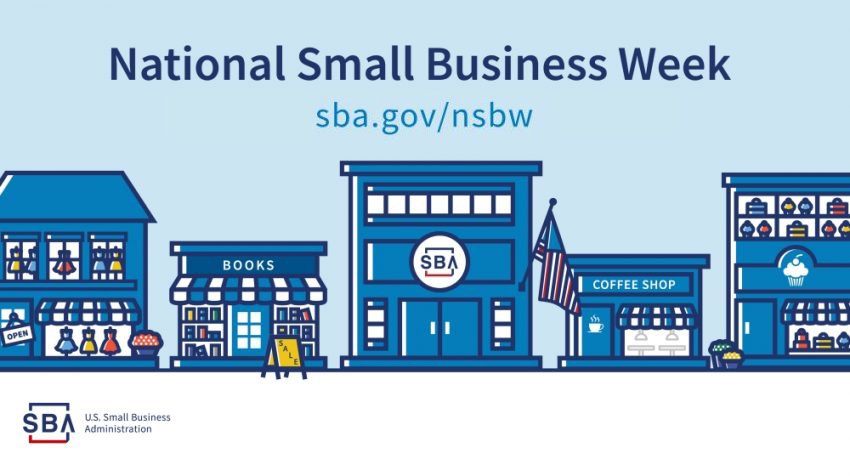For over 50 years, the U.S. Small Business Administration (SBA) has organized and hosted National Small Business Week, historically celebrated the first week of May. In 2020, complications associated with COVID-19 resulted in SBA postponing the annual celebration until September. However, organizations and companies across the U.S. continued to recognize it on the first week of May as it usually occurs. The SBA recognizes National Small Business Week to emphasize the importance of small businesses in the United States and their contributions to its economic well-being. With 31.7 million small businesses employing 60.6 million (47%) of all U.S. employees in 2020, small businesses, which make up 99.9% of all United States businesses, can accurately be called the “backbone of America.”
Small businesses are bastions of diversity and inclusion. According to the U.S. Census Bureau, over 75% of women-owned, minority-owned and Hispanic-owned businesses employ fewer than 20 people. While SBA’s definition of a small business differs depending on industry and/or generated revenue, those who employ fewer than 20 people would likely classify as a small business.
The SBA has traditionally organized events and conferences for small business entrepreneurs during National Small Business Week. However, the organization has not yet announced this year’s celebration. Last year’s virtual conference, which took place Sept. 22-24, was focused on recovery, adaption and innovation following the COVID-19 outbreak. Business owners can find more information about 2020 National Small Business Week and upcoming SBA events at SBA.gov/NSBW.
The impact of the novel coronavirus has affected businesses across the world, demanding that owners learn to adapt their practices to meet its challenges or risk falling behind in its wake. For the past year, as individuals and corporations struggled to make ends meet, the importance of keeping up to date with the latest advice and trends in business management has been emphasized by the rapid shift associated with COVID-19 response. Almost every aspect of business management has changed, such as remote working, customer engagement, logistics, safety precautions and marketing, to name a few.
This National Small Business Week, show appreciation for the small businesses in your community by following these recommendations from your Better Business Bureau:
–Shop local. Before buying an item from a major corporation, search in your community to determine if a local retailer offers the same thing. Independent bookstores are a great example of this concept. Instead of purchasing the newest best-selling book from a giant conglomerate, support your local community and meet the small business entrepreneurs in your area. Even buying from major retail chains in your community will help businesses in your area more than online purchases. Most companies have an option to order online and pick up at the store.
–Go to the source. While there will always be times that delivery is the best option, consumers should make an effort to go directly to the source of purchase. Third-party delivery services charge restaurants fees to use their services, taking away from the profit margins of small businesses. Small businesses listing their products on “digital shops,” such as Amazon or eBay, may also have a percentage of the sale diverted to the hosting website. By going directly to the source of these products, consumers can support small businesses by removing the middleman.
–Be social. The rise of social media has transformed an incalculable number of things, but business marketing may be one of the most significant transformations. Bolster small businesses in your community by “liking” them on social media, writing positive reviews, posting positive photos and tagging the company in your posts. Promoting these businesses through social channels has the same effect as “word-of-mouth” recommendations, enhancing their digital presence.
–Participate in community events. While the pandemic has left many individuals feeling isolated, safe community events are occurring in many cities across the nation, either digitally or in person. Farmers markets, networking events, community celebrations and national holiday celebrations are fantastic avenues to support locally-owned small businesses, meet your community and learn what local businesses offer. It is also where ideas, opportunities and knowledge can be shared, strengthening the overall small business community in your area.
–Offer assistance. Be generous and forthcoming with any assistance that you could provide to a small business. Service businesses, such as personal trainers and hair salons, have been significantly affected by the coronavirus pandemic and are challenging to reopen with current COVID-19 precautions. If you have technical or skilled expertise, such as an electrician or a lawyer, consider offering your services to small businesses in your community at a discounted rate while they recoup from the disruption caused by the pandemic.
Better Business Bureau hosts a resource center specifically tailored for the needs of small businesses across North America. These resources can be accessed for free at BBB.org/SmallBusiness.
The SBA offers various resources for small businesses across the nation to assist in planning, execution, and evaluation of business practices, such as Small Business Development Centers. To find an SBA resource near you, visit SBA.gov/local-assistance.
Small business entrepreneurs must remain vigilant against scams that specifically target their business. Visit BBB.org for more information about common scams that target small businesses.
ABOUT BBB: For more than 100 years, the Better Business Bureau has been helping people find businesses, brands and charities they can trust. In 2020, people turned to BBB more than 220 million times for BBB Business Profiles on 6.2 million businesses and Charity Reports on 11,000 charities, all available for free at BBB.org. There are local, independent BBBs across the United States, Canada and Mexico.






